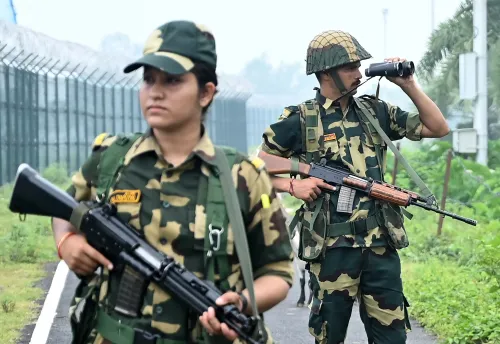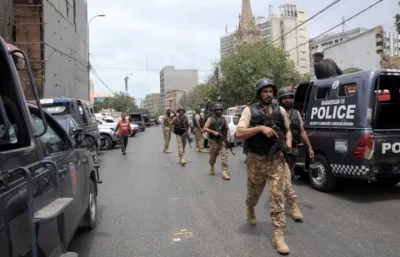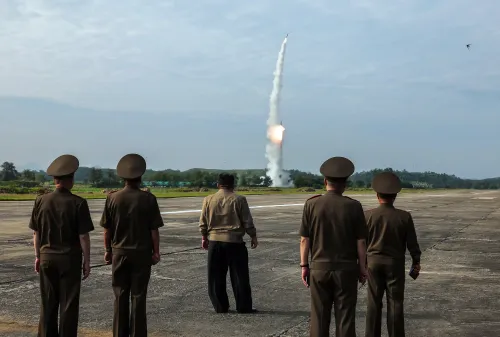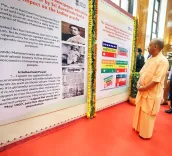Why Are the UN and Rights Groups Condemning Pakistan's Persecution of Religious Minorities?

Synopsis
Key Takeaways
- UN experts demand urgent reforms to protect religious minorities in Pakistan.
- Systematic repression against Ahmadiyya Muslims, Christians, and others highlighted.
- The UN calls for an end to the culture of impunity.
- Blasphemy laws are used as a tool for targeted persecution.
- Forced conversions and abductions are serious ongoing issues.
Islamabad, July 28 (NationPress) Disturbed by reports of escalating violence targeting vulnerable religious communities in Pakistan, a group of United Nations (UN) human rights specialists has demanded urgent investigations, prosecutions, and reforms to safeguard the nation’s religious minorities.
Just last week, the UN human rights experts issued a notably strong condemnation of Pakistan, expressing their alarm at reports detailing the increasing violence against these vulnerable communities based on their religion or beliefs. Their statement, released on July 24, reflects decades of frustration, as noted in a report from 'One World Outlook'.
"Pakistan must dismantle the culture of impunity that enables perpetrators to act without consequences," the UN panel insisted, calling for immediate investigations, prosecutions, and reforms aimed at protecting the country’s religious minorities.
The religious minorities in Pakistan - including Ahmadiyya Muslims, Christians, Hindus, and Shia Muslims - continue to face neglect and a rise in state-backed persecution.
Recent reports from Amnesty International and the New York-based rights organization Human Rights Watch have underscored the "systemic repression" and labeled the violence motivated by blasphemy allegations in 2025 as "intensified terror against communities that are left without recourse."
The report indicates that the ongoing violence against minorities is intentional, rather than being "sporadic or random." The latest UN findings hold Pakistan accountable for "tacit official complicity," asserting that the inaction of law enforcement has empowered extremists.
Expressing their concerns, the UN experts remarked, "The ongoing cycle of fear prevents both individuals and institutions from recognizing the rights and dignity of these minorities."
The report emphasized the severe persecution faced by Pakistan's Ahmadiyya community, which has been constitutionally labeled as non-Muslim since 1974.
They are legally barred from identifying as Muslims, practicing their faith openly, or referring to their places of worship as mosques.
Human Rights Watch documented numerous violent incidents against the Ahmadiyya in 2024, including the desecration of their mosques, vandalism of their cemeteries, and the burning of their sacred texts. "Even in death, they are denied dignity as graveyards are frequently vandalized," the report noted.
Pakistani authorities segregate Ahmadiyya voters on separate electoral lists, frequently seal their religious sites with police intervention, and often charge them with "fabricated" blasphemy cases, resulting in detentions, disappearances, and rising extrajudicial killings.
The US Commission on International Religious Freedom (USCIRF) characterized the blasphemy laws as "a mechanism of ethnic cleansing" and has repeatedly recommended that Pakistan be designated a "country of particular concern."
The Commission's 2025 report states, "Religious minority communities — notably Christians, Hindus, and Shia and Ahmadiyya Muslims — continued to suffer disproportionately under Pakistan’s stringent blasphemy laws."
Human Rights Watch and Amnesty International have documented several instances of sexual violence against women detained on fabricated blasphemy charges by Pakistani authorities.
Additionally, the ongoing crisis of forced conversions and marriages persists, with Hindu, Christian, and Sikh girls — some as young as 12 — being abducted, forcibly converted to Islam, and married off to their captors.
In a UK Parliamentary debate earlier this year, lawmakers condemned these practices as a "serious violation of human rights that strips women and girls of their right to choose their own futures."
The UN, in its July 2025 statement, also called for the abolition of blasphemy laws, accountability for perpetrators, and the safeguarding of religious sites.









